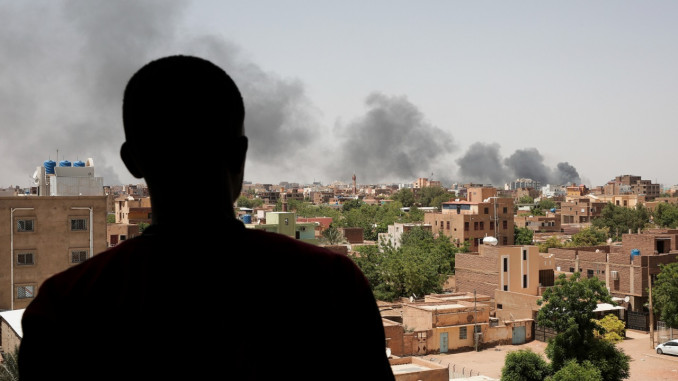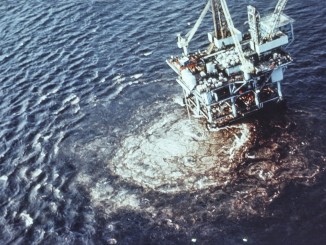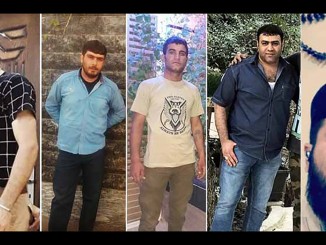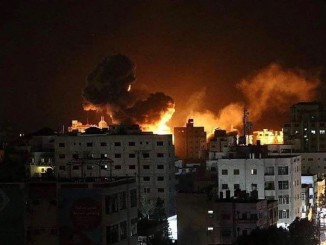
This is a translation of an article that appeared in Prensa Obrera on April 17, 2023, the website of the Trotskyist Party, Partido Obrero of Argentina, (Workers’ Party).
The armed clashes which broke out this weekend in Sudan aroused fears of a new civil war in this African territory. The army, under the command of the head of state and head of the Sovereign Council, Abdel Fatah al Burhan, is trying to quell the uprising of the Rapid Support Forces (RSF), led by the second strongman of the country, Mohamed Hamdan Daglo, alias “Hemedti.” More than 100 civilians have been killed amid heavy fighting in the heart of the capital, Khartoum.
Al Burhan and “Hemedti” had been political partners in the October 2021 coup, which ousted Prime Minister Abdalla Hamdok and put an end to a military-civilian transitional government. But power disputes immediately broke out between the two. In the last weeks, before the outbreak of the armed clashes, the dissensions revolved around the place of each one in the new political transition process encouraged by the African Union and the UN, which finally collapsed with the first shots.
Partners and Enemies
The current president of Sudan is a graduate of the Khartoum Military Academy and belongs to the military elite. The armed forces dominate very important businesses, thanks to the control or participation in hundreds of companies in the banking sector, construction, gold and telecommunications, among others. He became the country’s strongman after the fall of Omar al-Bashir, the dictator who ruled between 1989 and 2019 and who was abandoned by the military in the midst of a popular rebellion. Al Burhan led the Transitional Military Council between April and October 2019, with “Hemedti” as his deputy, and thereafter, the Sovereign Council.
Unlike Al Burhan, “Hemedti” has a humble background as a camel herder in the Darfour region in the west. He led, on behalf of the dictator Omar al-Bashir, the paramilitary Janjaweed militias that carried out an ethnic cleansing against the agricultural population of that place, during the war that left 300,000 dead at the beginning of the century in that region. The Janjaweed militias, equipped with 4×4 pickup trucks, horses and camels, were formed in the face of the Army’s difficulty in operating in the conflict zone.
In 2013, the Janjaweed militias became the current RSF and were transformed into a more conventional unit. Al-Bashir saw them as a counterweight to possible coup plots within the Army. “Hemedti” accumulated great power: by 2019 the RSF had 50,000 troops and he had become one of the richest men in the country, involved in the gold business.
The RSF participated in the overthrow of Al-Bashir, but also bloodily repressed the subsequent popular mobilizations demanding a civilian government. For this very reason, when he now speaks of preserving the legacy of the 2019 “revolution,” he is telling a lie.
The Army elite always despised the “Hemedti” fighting militias that became the RSF, coming as they do from peripheral regions of Sudan. Today, it is estimated that the RSF has about 100,000 members and that it has armored vehicles and drones, although it does not have the air and artillery power enjoyed by the official armed forces.
According to the daily El Pais (4/17/23), al Burhan has a good relationship with Egypt and Israel, while the RSF has forged ties with Saudi Arabia and the United Arab Emirates, to which it has provided military services in some conflicts (Yemen, Libya). However, the public reaction of the Arab states for the moment has been equidistant, and the Cairo government has proposed itself as mediator.
Oil and Minerals
A new civil war would be – not counting the events of Darfour – the third in this stricken African country. The first two (1955-1972 and 1983-2005) left around 2.5 million dead. They pitted the north (mostly Arab and Muslim) against the south (predominantly Christian) and one of their main issues was the control of oil wealth. The south is home to enormous hydrocarbon resources, but has no access to the sea, so they are exported through the Red Sea. The last war resulted in the independence of South Sudan, following a referendum (2011), and a commitment to an equal sharing of these resources. Quickly, however, South Sudan itself was plunged into a bloody civil war.
Imperialist companies have their eyes on Sudan’s oil and mineral resources. Meanwhile, Russia is interested in building a naval base on the Red Sea.
The Masses
The popular uprising of 2019 overthrew al-Bashir, but the military managed to hold on to power. Faced with the persistence of the mobilizations, they agreed on a civil-military transitional government with the Forces for Freedom and Change (FFC), with the aforementioned Hamdok as Prime Minister. Hamdok was deposed in October 2021 and later reinstated, although he eventually resigned. In recent months, new negotiations were taking place between the government and the FFC.
Those who have questioned these negotiations with the armed forces are the resistance committees, the most advanced sector of the Sudanese rebellion, based on the organization of the neighborhoods. In March 2022, the committees of the State of Khartoum agreed on a political document which proposes the dissolution of the paramilitary groups, the trial of the military, and the subordination of the security agencies to executive and civilian authorities, among other democratic demands. At the same time, it proposes the revision of the financial agreements signed since the arrival to power of al-Bashir and the revision of the debt (Al Monitor, 9/3/22).
Although the foreground has been occupied again by the military and its bloody internal disputes, Sudan only recently has seen important mobilizations against the October coup and the growth of inflation and poverty. A workers’ government is necessary to liquidate the military power and give an answer to the great problems of the masses.




